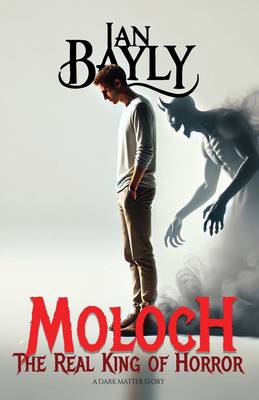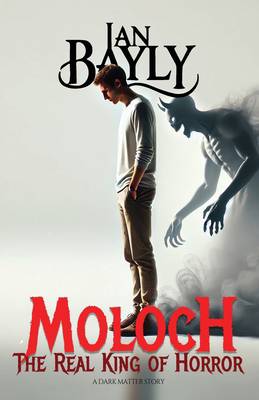
- Afhalen na 1 uur in een winkel met voorraad
- Gratis thuislevering in België vanaf € 30
- Ruim aanbod met 7 miljoen producten
- Afhalen na 1 uur in een winkel met voorraad
- Gratis thuislevering in België vanaf € 30
- Ruim aanbod met 7 miljoen producten
Omschrijving
Moloch: The Real King of Horror is not a novel that offers comfort, nor does it allow the reader to rest. It was written with the deliberate intention of denying pause, of forcing the audience into the same suffocating state endured by its central figure: a writer whose imagination, success and despair combine to summon something far older than himself. This book is not designed to be consumed lightly. It is an ordeal, and those who open its pages are invited into a theatre of anxiety where escape is uncertain.
At its heart is the story of an author who once lived a quiet and ordinary life, producing small works in obscurity while carrying the usual burdens of family and rejection. That fragile balance is shattered when his writing finally captures attention. Recognition brings temptation, and with it comes the first whispers of Moloch. What begins as a subtle unease soon coils into his thoughts, following him to his desk, his dreams and his dinner table. The more he writes, the louder the voice becomes, until the boundary between creation and possession dissolves.
Moloch does not roar onto the stage. He seeps, inch by inch, through ink and memory, settling into the cracks of ambition. He waits at the edges of sentences, turning inspiration into hunger, fame into madness, and a once-ordinary life into a spectacle of decay. Family ties fray, friendships collapse, and the comforts of drink and drugs provide only fleeting reprieve. The writer spirals further, even as readers acclaim him, unable to see that the stories they praise are not entirely his own. Behind the curtain stands Moloch, demanding more.
The narrative grows increasingly claustrophobic. The author cannot distinguish between page and world, between audience and predator. At a book signing he is handed a defaced copy of his own novel, covered in cryptic symbols that seem to pulse with meaning. At home, the kitchen becomes a place of dread, where the ancient figure finally manifests, sitting across the table as if he had always belonged there. The effect on the reader mirrors the experience of the protagonist: there is no room to breathe, no release of tension, only the relentless pressure of presence.
Yet Moloch is not content to be a tale of supernatural terror alone. It is also a meditation on obsession, on the corrosive nature of fame, and on the cost of yielding to creation without restraint. The story asks what it means to be an artist when every act of making feels like an act of self-destruction. It lingers on the line between genius and madness, not as a romantic notion but as a bleak reality. The protagonist does not become heroic; he becomes hollow, a vessel for something older and insatiable.
For readers of literary horror, psychological fiction and the darker traditions of the supernatural, Moloch offers an experience unlike the familiar rhythms of genre. It takes the structure of a possession story and strips away the comforts of resolution. There is no priest to banish the demon, no neat closure to deliver relief. There is only a growing sense of inevitability, a march towards collapse that the reader is powerless to stop. It is this absence of safety that gives the book its force.
Ian Bayly has written Moloch with the precision of a craftsman and the unease of a man willing to expose his own shadows. His prose does not shout; it insists, quietly and relentlessly, until the reader realises they are trapped. The novel stands as both horror story and allegory, reflecting the human cost of ambition and the destructive allure of forces beyond comprehension. For those who dare, it is a descent into obsession and despair, a confrontation with the hunger of Moloch, and a reminder that some hungers are never sated.
Specificaties
Betrokkenen
- Auteur(s):
- Uitgeverij:
Inhoud
- Aantal bladzijden:
- 194
- Taal:
- Engels
- Reeks:
- Reeksnummer:
- nr. 2
- Leeftijd:
Eigenschappen
- Productcode (EAN):
- 9781764298315
- Verschijningsdatum:
- 1/10/2025
- Uitvoering:
- Paperback
- Formaat:
- Trade paperback (VS)
- Afmetingen:
- 140 mm x 216 mm
- Gewicht:
- 231 g

Alleen bij Standaard Boekhandel
Beoordelingen
We publiceren alleen reviews die voldoen aan de voorwaarden voor reviews. Bekijk onze voorwaarden voor reviews.







